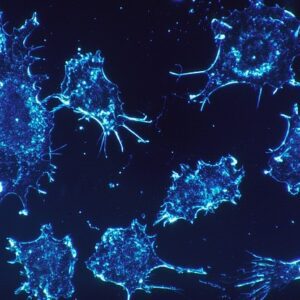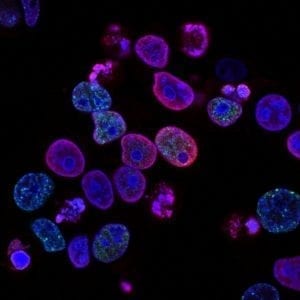Adrenocortical Carcinoma
What is adrenocortical carcinoma?
Adrenocortical carcinoma is a cancer that affects the adrenal gland, which is responsible for a number of important hormones. When a tumor forms on this gland, there can be an overproduction of said hormones.
What are the symptoms of adrenocortical carcinoma?
Symptoms include:
- A lump in the abdomen
- A feeling of fullness
- Pain in the back and/or abdomen
Other symptoms depend on which hormone is being overproduced. If it is cortisol, then affected individuals may experience high blood pressure, muscle weakness, high blood sugar, weight gain, a round and full face, a lump of fat on the back of the neck, swelling of the sex organs, and a deepening of the voice.
If it is aldosterone, then symptoms are frequent urination, feeling thirsty, high blood pressure, muscle weakness, and cramps. If testosterone is being overproduced in males, they may not notice the symptoms. However, if it occurs in females then they may experience acne, balding, no periods, deeper voice, and the growth of fine hair.
An overproduction of testosterone causes different symptoms in males and females as well. Females may experience irregular periods, weight gain, and vaginal bleeding in those who have gone through menopause. Male symptoms include a lower sex drive, growth of breast tissue, and impotence.
What causes adrenocortical carcinoma?
Nobody knows what causes this cancer. Risk factors have been identified: having Li-Fraumeni syndrome, Beckwith-Wiedmann syndrome, or Carney complex.
How is adrenocortical carcinoma diagnosed?
A physical examination is the first step in diagnosing this cancer, which is followed by evaluating medical and patient history. Tests are also used, such as urine tests, blood tests, and imaging tests. Biopsies are also utilized. Further tests may be necessary to assess the spread.
What are the treatments for adrenocortical carcinoma?
Treatment options include surgery, chemotherapy, and radiation therapy. Further methods are currently being studied, including targeted therapy and biologic therapy. Clinical trials may also be an option.
Where can I find out more about adrenocortical carcinoma?
Adrenocortical Carcinoma Articles


OR-449 for Adrenocortical Carcinoma Earns Rare Pediatric Disease Designation



Study Illuminates Treatment Options for Different Pediatric Adrenocortical Carcinoma Stages

First Patient Dosed in EO2401 Clinical Trial for Adrenal Tumors




